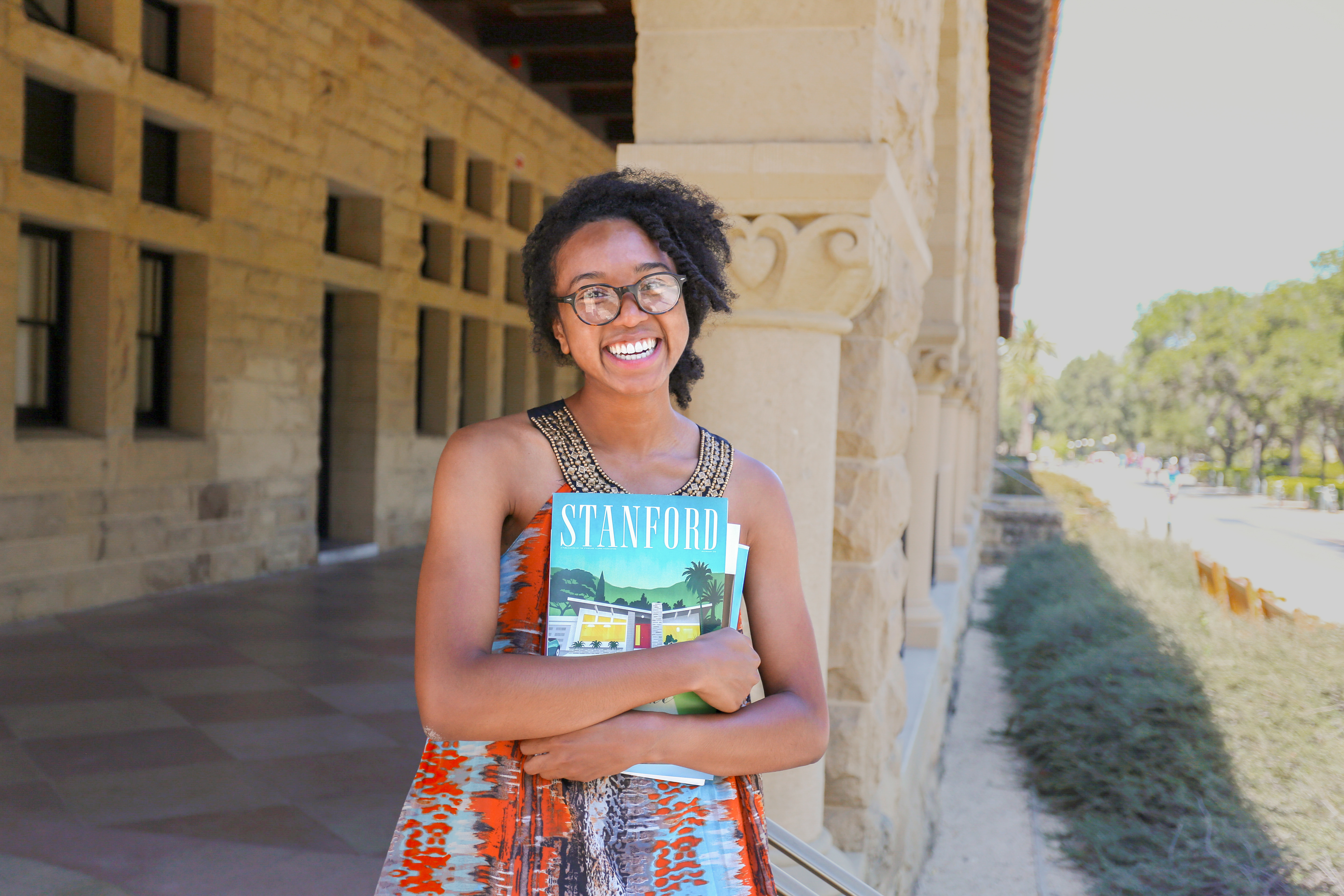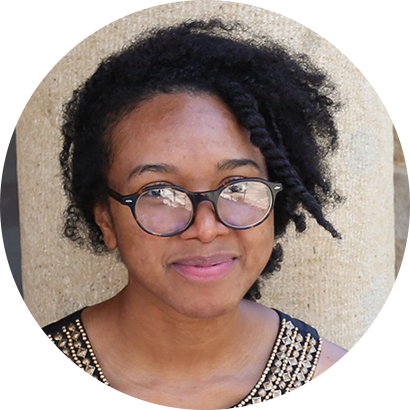
Rebekah Oragwu
What drew you to the field of education?
Compulsory schooling was a big draw for me as a kid. I literally couldn’t turn it down.
And I’m privileged because the K-12 schooling I received was adequate and even excellent. So, apart from being forced to engage in school-based educational experiences, I enjoyed them. I wanted more of them.
I got to go to college.
I studied Human Biology here at Stanford for my undergrad, and a lot of my learning was based on the reality that people’s health is determined largely by social factors. Education was one of the social determinants of health we talked about often, because it came up a lot in the research as the critical determinant of health/quality of life/length of life. I didn’t study Human Biology to learn more about education, but that’s what ended up happening, and I found that I enjoyed it. I wanted more of it. The field is full of puzzles, and bleakness, and reasons to hope critically, and reasons to work with all of one’s heart. So I’m here.
Is there anyone who inspired you to pursue advanced study in the field?
I’ve always drawn a lot of strength from my parents. Their radical, generous love for other people has inspired me to pursue a career, which, in the words of Paulo Freire, can help create “a world in which it will be easier to love.”
Jennifer Wolf in the School of Ed was also a wonderful professor, propeller, and resource for me as I considered advanced study in the field.
What’s unusual about STEP?
There are so many fantastic teacher education programs out there. I chose STEP, in particular, for its small supervisory. As a neophyte to classroom teaching, I knew that I would benefit a lot from receiving focused and individualized mentorship. At STEP, we have just 3-4 teacher candidates per supervisor (check out that student: teacher ratio!), so I get to have brilliant teachers and teacher educators pay close attention to my teaching and learning. Not much more than a month into the program, the benefits of such an attentive structure on my learning, reflection, and development as an educator are already becoming clear to me. In a year’s time, I hope these benefits will be just as clear to my students.
Describe your classmates: How are they contributing to your education?
The great thing about being an aspiring teacher with aspiring teachers as classmates is that you find yourself surrounded by many of your favorite qualities in people: warmth, daring, humor, critical curiosity, sensitivity, eagerness to know, admiration of children, love for communities. My classmates are wonderful thinkers, feelers, and carpool buddies. We expect a lot of each other. One thing I will continue to expect of my classmates, and which I hope they continue to expect of me, is an increasingly urgent and grounded commitment to educating for social justice. We are just getting started.

What do you do to relax and have fun outside of school?
So, to be completely transparent, free time isn’t really a thing in STEP. But the hope is that everyone still manages to make it a thing. Here are some of my hobbies and soul-care necessities that haven’t died yet: running, sleeping in on Saturdays, sharing life updates (big and little) with my family and friends, reading for pleasure, staying connected to my church. Here are some hobbies that I hope to resurrect: writing short stories, napping. Finally, here are some hobbies that I’ve been introduced to during my STEP year thus far: cooking (transitioning to adult life), playing “Once Upon a Time” (an awesome storytelling card game my roommate got for me), and watercolor painting (our Creative Arts instructor gave us a set of paints to play with at home!).
What are your career goals?
I want to be a third-grade teacher and writer and advocate for my students.
Any tips for incoming students to help them get the most from their time at Stanford?
1) Get to know your professors, and 2) get to know your colleagues. You’ll have conversations you won’t forget, you’ll think in ways that wouldn’t be possible to do alone, and you’ll have thoughtful, compassionate best friends. Then you’ll take those friends, and 3) get to know the land around you, because it is stunning.

